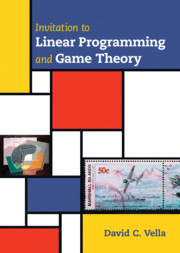We consider a game in which one player hides a ball in one of n boxes and the other player is allowed to search for it. There are known probabilities that the searcher will overlook the ball if he searches the correct box. The hider wishes to minimize and the searcher to maximize the probability that the ball will be found in m or fewer searches. We exhibit a procedure which allows efficient computation of optimal strategies for both players without solving the game as a linear program. The results are extended to a non-zero-sum game where the searcher's objective is to minimize the expected time until the ball is found.


